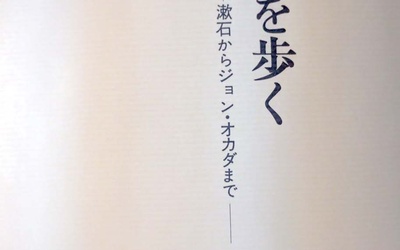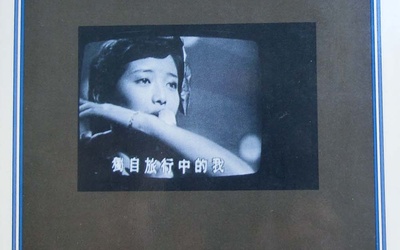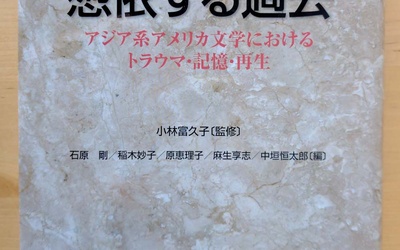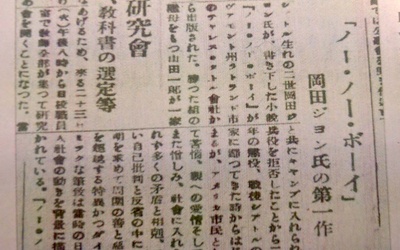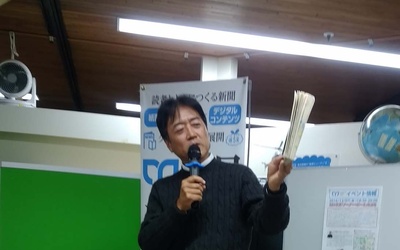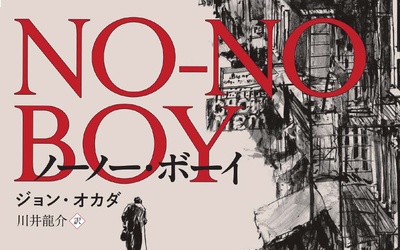Exploring the world of "No No Boy"
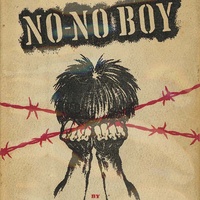
No-No Boy is a novel written by John Okada, a second-generation Japanese-American who lived in the United States during the Pacific War. He died in 1971 at the age of 47, and this is his only work. From the perspective of a Japanese-American who experienced the war, Okada explores a variety of themes, including identity, family, nation, race, and the individual. We will explore the world of this novel, which is still read today, and its appeal and significance.
Stories from this series
Episode 25 (final) Where do we go from discrimination, prejudice, and war?
Feb. 10, 2017 • Ryusuke Kawai
This is the final installment of the series on "No-No Boy." During this time, I was able to publish a new translation of the book, which I had been working on in parallel, exactly 75 years after the Pearl Harbor. At the same time, Donald Trump, a president who takes an exclusive policy against immigrants, appeared in the United States. Most people would agree that it is necessary to step up vigilance in order to eliminate terrorists. However, it is …
No. 24 Criticism and analysis from various perspectives
Jan. 27, 2017 • Ryusuke Kawai
The novel has been discussed intermittently ever since its first translation by Nakayama Yo, who translated "No-No Boy," under his real name, Yagasaki Shoji, in "Japanese Americans and Literature: John Okada and Lawson F. Inada" (Heian Jogakuin Junior College Bulletin, 8, 23-30, 1977). I'll list in chronological order what I've noticed, mainly in publications, from work introductions to academic papers. (The order is "Paper", author/author, and "Publication in which it is found") "The Return of No-No Boy: Joji Tani and …
No. 23: In Japan, debates have been ongoing since the 1970s
Jan. 13, 2017 • Ryusuke Kawai
The novel "No-No Boy" is a work of American literature written in English by Japanese-American author John Okada, but it has been discussed by experts in various fields beyond literature. In Japan, the world of this novel has been examined from literary, sociological and psychological approaches. In literature, it seems to have been often discussed as a research subject under the category of "Japanese American literature" or "Asian American literature." In recent years, "No-No Boy" has been featured alongside various …
#22: Is this not a novel? Evaluations and reactions to the first edition
Dec. 23, 2016 • Ryusuke Kawai
The first edition of "No-No Boy" was published in May 1957. The previous year, Japan had joined the United Nations and entered the international community, and the country was on the path to rapid economic growth. In the United States, the civil rights movement was gaining momentum following the bus boycott in Montgomery, Alabama in 1955. In the Japanese community, the first generation of Japanese had already been granted citizenship through the Walter McCarran Act of 1952. However, memories of …
21st "Pearl Harbor Day" ~ Talking about "No No Boy" at "Mainichi Media Cafe" ~
Dec. 9, 2016 • Ryusuke Kawai
The other day, news broke that Prime Minister Abe will visit Hawaii on the 26th and 27th of this month to meet with President Obama and pay tribute to the victims of the attack on Pearl Harbor. Although it is not technically the first time that a sitting prime minister has visited Pearl Harbor to pay tribute, it is the first time in our memory that a prime minister has officially announced to the public that he will visit the …
20th New translation published in Japan
Nov. 25, 2016 • Ryusuke Kawai
A new Japanese version of "No-No Boy" will finally be published next month. The publisher is Shunposha (Bunkyo-ku, Tokyo), a company that publishes books on social issues and lifestyle themes, with a focus on labor and welfare. The English version has been a best-seller, with 18 printings to date, selling over 150,000 copies. A translation was also published in the past, but it has been unavailable in Japanese for the past 10 years, so it is now possible to deliver …

